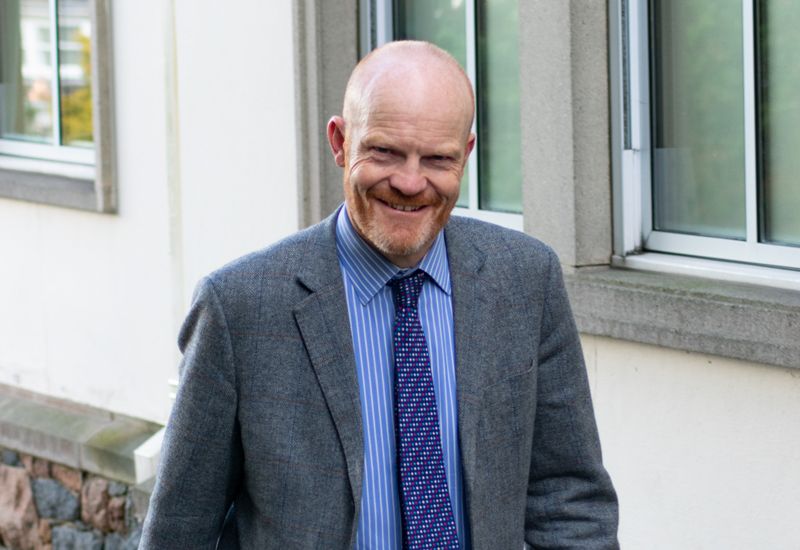


After a decade in politics, Deputy Gavin St Pier tells us he is still mystified by some of the goings-on within the States chamber during debates.
In his own words Deputy St Pier takes a look back at last week's States meeting which saw some important topics passed in a 'blink and you'll miss it' moment.
"Having been in the States for 10 years, it remains one of the mysteries of its annual routine that the policy letter from the Committee for Employment & Social Security on social security contributions and the benefits derived from them – of which the old age pension is the most important – pretty much can be guaranteed to float through the Assembly with no amendments and little debate.
It’s a mystery to me as this report covers a good 25% of total annual public expenditure and far smaller sums attract much greater scrutiny and debate. Social security contributions are, for many, a more significant deduction in pound terms from their earnings than income tax (which may be reduced because of raft of tax allowances.) The fact that they are going up 2.1% over 10 years is largely unknown, whilst a similar proposal in relation to income tax would probably rekindle another ‘Enough is Enough’ march on North Beach. 2022 was no different.

Pictured: Gavin St Pier successfully stood for election in 2012 - with the above 'one minute manifesto' broadcast by BBC Guernsey among his campaign tools. Now, ten years on - he still finds aspects of political life mysterious.
With the population and immigration policy review – of which more in a moment – dominating the three days’ debate, the States only turned its attention to contributory benefit and contribution rates very late on Friday afternoon, which is never a good time to start any meaningful debate. It was all done and dusted in about 15 minutes – although, based on past experience, it really wouldn’t have made that much difference had debate started much earlier in the week.
Population and immigration, inevitably, was the dominant topic of the week. Most of the public commentary in the media and social media had focussed on the number ‘300.’ This has often been mischaracterised as Deputy Prow’s Home Affairs proposing and the States agreeing to an increase in the population of 300 people a year. In fact, the policy letter was saying that the States ought to be planning for a net migration into the island of 300 people a year, if it wishes to have the number of people in the workforce in 30 years’ time at about the same as it was in 2020. A net migration of 300 does not equate to an increase in the population of 300 because with our aging demographic, more people are expected to die each year than are born.
The policy letter faced eight amendments, five of which were defeated and three carried. Those that were lost broadly sought to test the limits of our own working permit rules’ interaction with the immigration rules which are, to all intents and purposes, controlled by the UK. Home Affairs’ reaction to such revisions was couched as ‘strong opposition’ but was more than a tad hyperbolic at times.
The most honest speech of the debate should probably be credited to Deputy Andy Taylor, a member of Home Affairs, who said it was all very complex and he didn’t really understand it. Counter-intuitively perhaps, this approach actually proved quite persuasive in convincing members not to tinker with the policy letter as a product of ‘subject matter experts.’

Pictured: Deputy Andy Taylor was credited for the "most honest speech of the debate" for his comments on the population management policy letter.
The rules of the States include a provision that certain amendments, including those that have financial implications, require at least a week’s notice. There is good reason for this, to prevent late amendments, the consequences of which, there has been insufficient time to fully consider. There were two amendments that had been submitted with less than a week’s notice, one of which engaged this rule. This Assembly is even more willing than its predecessors to simply suspend the rules to permit them to be debated anyway and so it proved last week in relation to an amendment from Deputy Brouard. This amendment directed that consideration be given to a compulsory health insurance scheme for new residents. With a bag of a fag packet estimate, that it would ‘only’ cost £50,000 to engage external consultants to look at the matter, this fact did not deter members from supporting the idea. It was even seconded by Deputy Ferbrache, who as President of the Policy & Resources Committee, frequently admonishes members for their spendthrift ways, in the absence of a magic money tree. Neither were members put off by the fact the work had not been identified as a priority in the Government Work Plan, approved a few short months ago, or the absence of any spare internal resource to manage the project. Having supported this amendment, mere moments later Home Affairs argued, without any sense of irony, that the next amendment had been submitted too late to enable its proper consideration.
After 10 years, I ought to be more used to such inconsistencies."